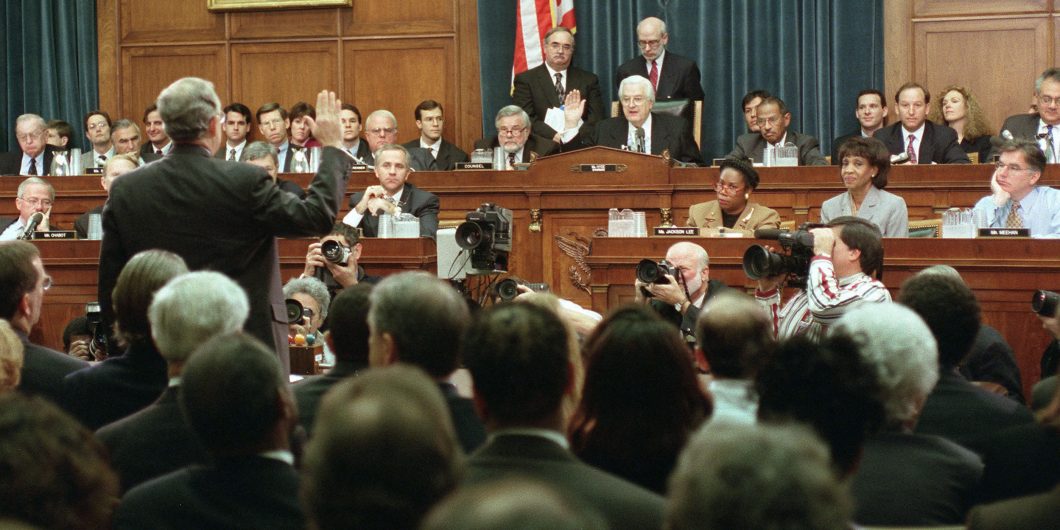The House Has No Obligation to Impeach the President
Speaker Nancy Pelosi has recently stated that she does not favor impeaching President Trump. Some have questioned her position on the grounds that the President has committed high crimes or misdemeanors subject to impeachment and that therefore the House has a legal obligation impeach him. This latter proposition is a legal claim about the meaning of the Constitution and it is false.
As with any constitutional question, we should begin with the text of the Constitution. The most relevant provision is in Article II, which provides that “[t]he president, vice president and all civil officers of the United States, shall be removed from office on impeachment for, and conviction of, treason, bribery, or other high crimes and misdemeanors.” The provision notably does not lay any obligation on the House to impeach the president. In Article I of the Constitution, the House is given the “sole power” of impeachment. The grant of a power does not generally imply an obligation to use it.
Moreover, the nature of impeachment itself suggests that the House has discretion on whether or not to proceed with impeachment. It is well-established that the House acts as a prosecutor in the proceeding to remove an executive officer. Prosecutors generally enjoy prosecutorial discretion not to proceed.
But beyond the discretionary nature of an essentially prosecutorial power, the removal process itself contemplates political judgment. As I argued at the time of the Clinton impeachment, the impeachment process focuses on removing those who are deemed unfit for office. The requirement that they committed high crimes and misdemeanors as a precondition to impeachment is an important one, because it requires some objective misconduct. As a result, it assures that impeachment is more than a simple legislative vote of no confidence that would turn our system of separated powers into parliamentary government. But the requirement does not remove the need for political judgment in deciding whether the official is unfit under the circumstances.
Surprisingly, Professor Cass Sunstein is quoted in a recent New York Times article as dissenting from this view:
If we have a clear impeachable offense that is not a borderline one but a clear one, the impeachment process is mandatory because the House of Representatives is an agent of ‘we the people,’ the first three words of the Constitution.
With respect, this argument is feeble. The powers and obligations of the legislature as the people’s agents are set forth in the Constitution. The fact of that agency does not add to or subtract from them. Perhaps the Preamble to the Constitution could help in revolving an ambiguity, but there is no ambiguity here and Sunstein provides no analysis how its reference to the people might clarify one.
Lest it be thought that my legal opinion is influenced by partisan considerations: it is the same one that I gave in an answer to the House Judiciary Committee when it was considering the impeachment of President Bill Clinton.

